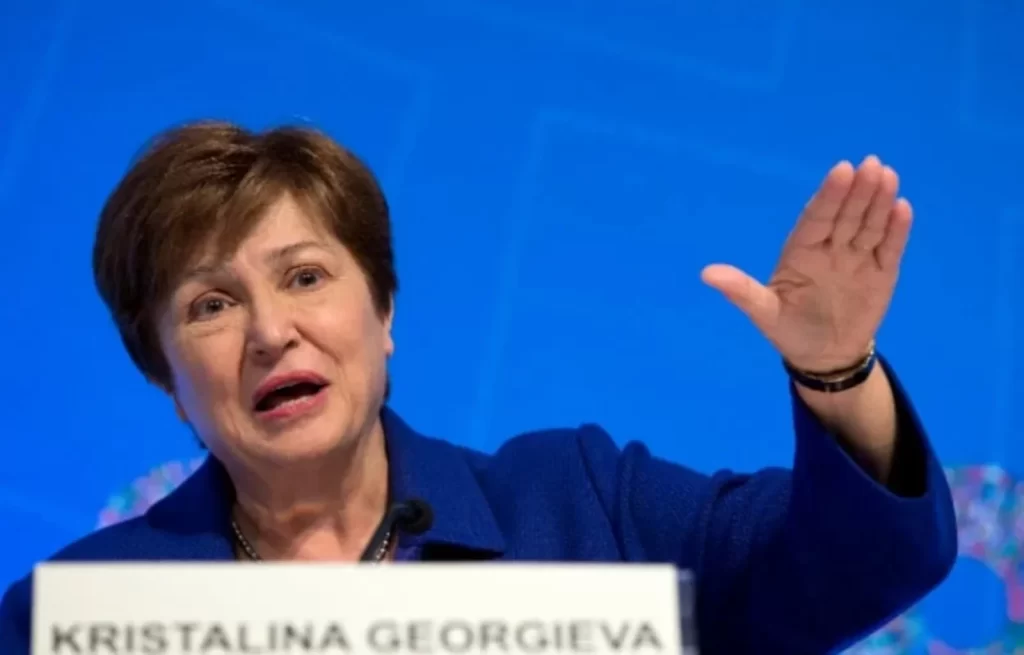
IMF Managing Director Kristalina Georgieva. Photo | courtesy.
The International Monetary Fund (IMF) is preparing to issue a downgraded outlook for global economic stability, sounding fresh alarm bells for both developed and emerging economies.
This move, expected to be formalized during high-level meetings in Washington this week comes at the backdrop of escalating global trade tensions, persistent inflation, and growing uncertainty across financial markets.
IMF Managing Director Kristalina Georgieva acknowledged that while the revised forecasts stop short of predicting a global recession, inflation expectations have hardened, and market volatility continues to unsettle investors. She emphasized the need for economies to prioritize resilience and cooperation over isolation in the face of mounting economic headwinds.
“Financial market stress remains a concern,” Georgieva noted, highlighting that tariff-driven disruptions, especially by the United States, have already begun to distort global trade flows.
A new round of purchasing manager indexes (PMIs) from the U.S., Europe, and Japan is expected to offer further insight into the economic strain on manufacturing and service sectors, coming just as new tariffs begin to take effect.
ALSO READ: Breaking: Inside Trump’s Plan To Close US Embassies And Consulates Worldwide
Globally, markets are responding to the uncertainty. China is holding its loan rates steady as it monitors inflationary pressures, while Indonesia and Brazil grapple with weakened currencies and shifting central bank policies. In Europe, early PMI data points to stagnation in wages and declining consumer sentiment, adding to fears of slowed economic momentum.
The U.S. is already feeling the pinch of diminished consumer confidence, driven by costlier imports and trade policy ambiguity. Meanwhile, Mexico is contending with widening trade imbalances, and several Latin American economies are bracing for spillover effects from global volatility.
Finance ministers from across the world are expected to address these emerging fault lines in Washington this week. Key on the agenda is a call to reinforce multilateral cooperation and reduce fragmentation, particularly in how economies respond to inflationary shocks and the evolving trade landscape.





